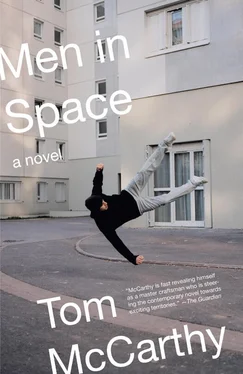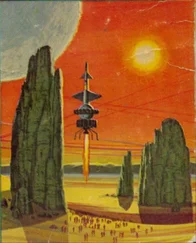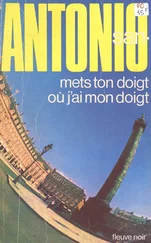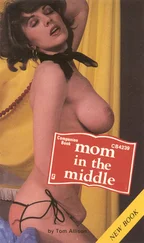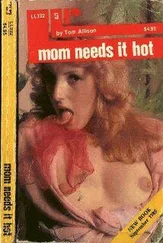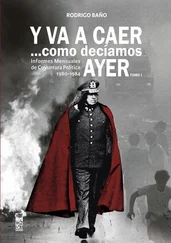“No. He sounded Russian.”
“To me he sounded like this Bulgarian guy I know.” He never went round and said goodbye to Anton, or found out if Helena got a reply from the UNHCR to that letter he cleaned up for her. The phones ring again. Julia picks up first:
“ Art in Europe . What? Yes, hang on.” She cradles her receiver like Lucy did a moment ago — a kind of office knack they like to show off here — turns to Nick and says: “Another Russian-sounding bloke for you. You’re popular with the KGB this afternoon.” She presses a button and the phone on his desk rings.
“Maybe it’s him again,” Nick murmurs, picking up. “Hello?”
“Nick?” It’s a different person, someone he knows.
“Yes?”
“Sasha here.”
“Sasha! Hello.” What’s he calling here for? Nick’ll be back in a couple of hours. “What’s new?”
“Listen: we have receive a letter from the lawyer of the man who owns this building.”
“Oh shit.”
“Yes, oh shit. He’s got the necessary documents to make us leave.”
“Can’t we contest it?”
“A judge already has made his decision. A copy of the judgement’s arrived with the letter.”
“Can’t we appeal?”
“Frankie says this kind of paper means the decision is final.”
“When must we move out?”
“Five weeks from today maximum. If we stay longer he can send police round to break the door down … You hear me?”
“Yes. So what do we … Where will you go?”
“I’ve been with Jessica this afternoon to the Herhuisvesting place. They’ve given me a form. Because I’m an official refugee, I should have priority for a new place. They said they will certainly give me one. If you don’t find somewhere before we leave, you can stay with me until you do.”
“Well, thank you. I’ll try to find somewhere by then, though.”
“Bring some toilet paper when you come here.”
“Right. Yeah. Bye.” He hangs up, then, for Lucy’s benefit who’s already been half-listening, adds: “Shit.”
“You’re fired,” sneers Julia across her shoulder.
“What’s wrong?” asks Lucy.
Nick tells her. She listens, then says:
“Well, you can use my sofa for a week if you have nowhere.”
Does she like him after all? Maybe her sofa’s in the same room as her bed: it will be if her flat’s a studio. Nick pictures black tights hanging over radiators … He tries not to sound overenthusiastic as he answers:
“Well, thanks, that’s really kind. I don’t think it’ll come to that. I mean, I can stay with my friend Sasha.”
“Well, the offer’s there.” She turns back to her work. Is she blushing? Johanna’s noticed him looking at Lucy; he buries his eyes in his list, picks a random gallery in Hamburg and phones them up. Warhol, Bourgeois. Cindy Sherman in April. He writes the dates down, then decides to call Joost like he meant to twenty minutes ago. Some guy, not Joost, answers:
“ Met Han.” Like mit , as in You’re speaking with .
“Hello. May I speak to Joost van Straten?”
There’s a silence on the far end of the line.
“Hello?”
“Who calls?” The voice sounds cautious, suspicious.
“My name’s Nicholas Boardaman. I know Joost from Prague.”
“Yes. He wrote about you in one letter.”
“Oh! Right … Is he not back yet from …” Where did he say that he was going? Lithuania? There’s a Lithuanian painter called Vaitkunas showing at the Stedelijk; maybe Joost’ll know him. This guy Han’s being very slow in answering. “He told me he was going to collect paintings for a show, or …”
“He is dead.”
Nick holds the phone and looks at the empty desk.
“Hello?” the man on the far end says. “Are you there still?”
“Yes,” he answers. “When did he …” Lucy’s looking at him again: she can sense from his tone that something’s wrong. Julia and Johanna too. Han speaks slowly, in a voice that still has that upswing at the end of every sentence even though it’s deep and pained:
“In Tallinn. In Estonia. He died there, walking on ice. In the bay the water was frozen, and he walked out far across it. He didn’t come back.”
“Jesus Christ! I …”
“Nicholas?”
“Yes?”
“Would you like to meet? Joost wanted to see you here. He said you might write a catalogue piece for the exhibition he was planning. We will make this show, as a memorial.”
“Well, yes. Of course. I’d …”
“When is good for you? Next Friday?”
“Sure.”
They arrange to meet at Han’s workplace. Han gives him directions, which he writes down. When he hangs up Lucy tells him he’s gone white.
“Someone’s … I’ve just got to …” He goes to the toilet, slaps some water on his face, then looks up at the mirror. It is white, with pink pools growing in the cheeks where the cold water hit it. He tries to imagine what it’s like falling through ice: you might just slip off peacefully as cold closes down your body slowly, without pain. Or maybe you’d panic and, trapped, claw at the ice’s underside like Sasha banging and scraping on his windows, but without an audience: just sky and the odd seagull. Even if there were people on the other side who you could see, above the surface, they wouldn’t know you were there if they hadn’t seen you fall …
Nick feels claustrophobic. He opens the toilet’s window. From this height, the layout of canals below looks like a spider’s web. The buildings and the sky blur into a continuous grey for a few seconds and then separate out again and grow distinct. The creak of a bicycle’s wheels comes to him from the street, and mingles with Julia’s voice, which is calling to him that she’s got the Galerie Schröder on the phone.
* * * * *
… to the car market by Palmovka. Above it was a fenced-off compound in which 3 [three] shafts rose from the earth. They looked to me like pens, like the pen with which I am writing now: 3 [three] pens with their caps fitted to their tail ends, the clips with which pens can be made to remain stable in their users’ pockets forming slight protrusions, the nibs buried deep down in the earth below. They also looked like periscopes, although the slatted surface of the clips’ outer sides made me think of microphones more than of viewing eyes. There were also large cylinders, or tubes, piled up in pyramid formation. They were rusty. I think it likely, although not certain, that these were previously sections of a gas or sewage pipe. They were intended to be placed beneath the ground and yet were placed above, in full view of passers-by while, conversely, the shafts were plunged far down, as though to ventilate a world of people who had chosen to conduct subterranean existences in a burrow-like network of rooms and tunnels. Some things should be hidden, some things not. Why do I write this? I do not know, and yet I feel that I should, for the record.
Inside the compound there were also huts, perhaps of workmen. Their windows were black and opaque. Some of these were mounted on wheels, as though with a view to being moved quickly to a new location if events made this necessary, although the wheels were grey and rusty, which suggested that they had been static for some time. Inside the compound was another compound with an iron fence around it; inside this one, yet another. The fences were dilapidated, leaning; bushes clambered over them like crowds storming barriers. Inside one of the inner compounds there were piles of wooden pallets and of coal, with rubber tubing coiled around their sides, as though a group of long, thin snakes were guarding them — or rather, had been guarding them, had shed their skins, and left. There were cages, of the shape and size of lions’ cages, although these, also, were empty. The cages, coupled with the wheeled cabins, gave the impression that a circus troupe had been here, had passed by and left its refuse, its broken wagons, all the things that it no longer needed.
Читать дальше
